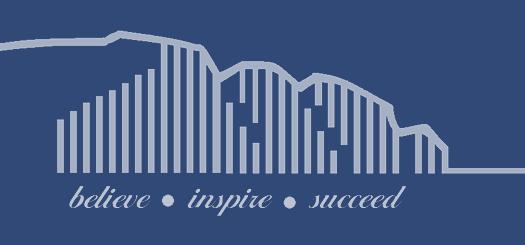












Sidmouth College enjoys an unrivalled position at the heart of a thriving community. We occupy a prime spot at Primley Road, just a mile from the sea front and nestled in the Sid Valley, overlooked by Sidmouth’s Peak, Trow and Salcombe Hills. We have the added advantage of Sidmouth Sports Centre being right on our doorstep.
Sue Hurley Head of Sixth Form
Choosing the right courses and qualifications to fit in with your long term plans is hugely important and, at Sidmouth College, we cater for all interests and abilities. We also provide students with opportunities to develop a broad range of additional life skills and experiences through our strong commitment to extra curricular activities, such as the Duke of Edinburgh Awards Scheme, the Extended Project and Young Enterprise. . It’s a unique mix that gives our students the best possible chance of achieving their career goals and developing into more rounded and confident adults. We encourage all of our students to have high aspirations and we do everything we can to help them fulfil their future career paths. In particular, we provide:
• A wide choice of academic courses to cater for all abilities and interests
• High quality teaching, with individual supervision and regular reports
• An opportunity to develop the independent learning skills you will need for Higher Education and employment
• A friendly and supportive environment where you feel valued and cared for
• Excellent facilities, including IT suite, Café 6, Gym and our Common Room
• Many opportunities to engage in exciting extra curricular and social activities
• A specialist careers advisory service to give you the support you need to achieve your ambitions
Sidmouth College has a history of producing strong results for both attainment and progress. This continued in the Summer of 2022 with all students achieving on or above their predicted grades.
Our team of highly skilled tutors, teachers and support staff work closely with our students to ensure they are fully aware of the range of future opportunities available to them and receive the necessary support to achieve their goals.
A significant number of our Sixth Form students move on to Higher Education. In recent years, many of our students have taken up places at top universities, including

Oxford
Cambridge
Warwick
Birmingham
Bristol
Newcastle
York
Bath
Cardiff
Others successfully secured employment, decided to take a Gap Year, or stayed on at the College to further study extended A Level courses.
A Levels are academic courses that involve: theory; clear, well thought out essays; identification and expression of different points of view; analysis of concepts; and the testing of generalisations. Independent study is very important and background reading and research is expected. At Sidmouth College we offer a wide range of Level 3 courses, details of which can be found in this prospectus.
A nationwide reform of A-Levels has taken place over the last three years. At the core of these changes lies the decoupling of the AS from the full A Level qualification. All A Level teaching will take place over a period of two years, using a linear approach. Examinations will take place at the end of year two. A Level courses are offered in the following subjects:
Art & Design, Biology, Business Studies, Chemistry, Computer Studies, Drama & Theatre Studies, English Language, English Literature, Environmental Science, Geography, Geology, History, Mathematics, Further Mathematics, Media Studies, Philosophy & Ethics, Photography, Physics, Politics, Psychology, & Sociology
Applied Science, Health and Social Care & Sport Science.
If you have any questions, please contact the Head of Sixth Form, Mrs Sue Hurley.
We are able to offer financial support to eligible students in order for them to afford transport, course materials, equipment, local and overseas educational visits and many other items which will enhance learning. Any student whose family can demonstrate an income of less than £30,000 will receive some degree of financial assistance. For more details of the scheme please visit our website at www.sidmouthcollege.devon.sch.uk/information to download a copy of the Bursary Policy, which is under the heading of Financial Support.
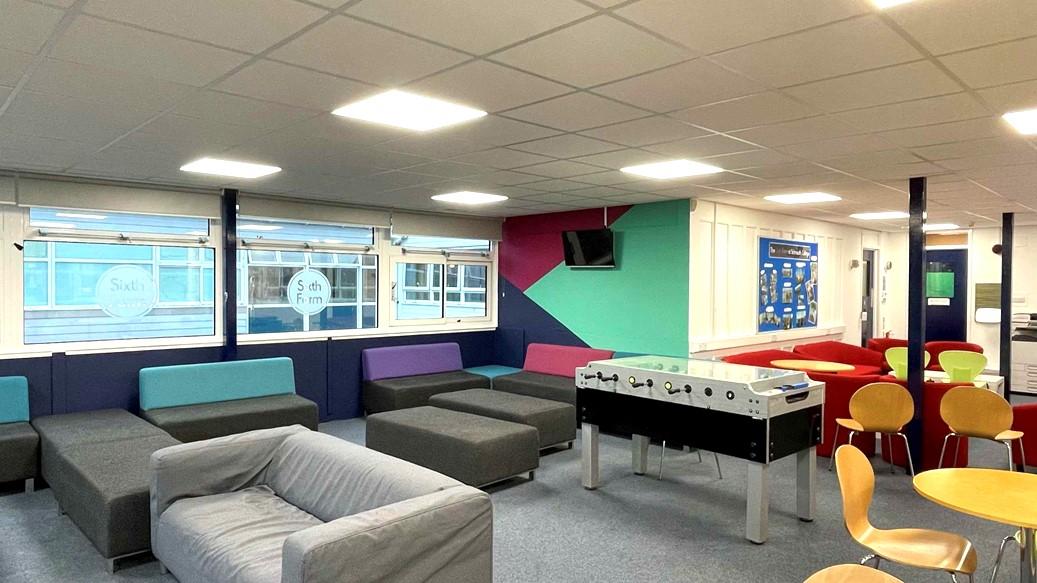


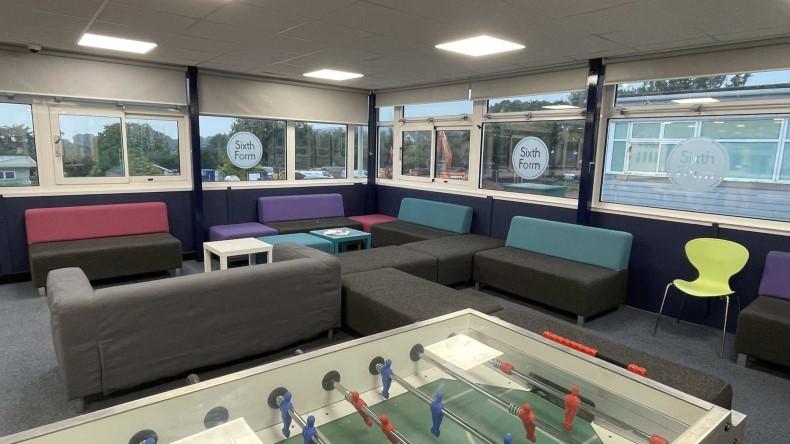
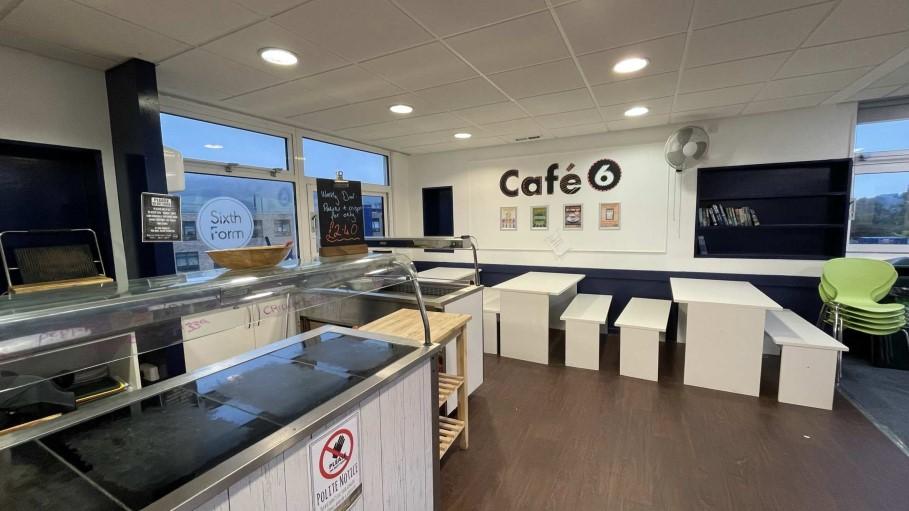
All courses are offered subject to sufficient numbers of students enrolling.
As a consequence of recent and future changes made by the Department for Education, course requirements may be subject to change. As illustrated in the prospectus, requirements vary between subjects, with most currently asking for GCSE grades 4, 5, or 6 as a minimum. However, these could change if government policy dictates. If you have any queries about this then please contact Head of Sixth Form Mrs Sue Hurley on the following email address: shurley@sidmouthcollege.devon.sch.uk
out an application form
from our website, or in hard copy
our main
-process
On receipt of your form, we will consider your application and contact you regarding an interview in due course.
applications may be accepted, depending on circumstance and merit. Enquiries regarding late applications should be made to Head of Sixth Form, Mrs Hurley.

In Art and Design we try to develop a sense of excitement and fun in the selection and handling of a wide range of materials, and use this to relate our own feelings to the visual and tactile elements of the external world.
Drawing is central to our work, being a good way of collecting information, as well as helping us to understand what we see around us and develop our responses to it. We also study the work of artists from all periods and cultures so we can better understand their techniques, how it expresses both their own individuality and the context in which it was made. To this end, we arrange visits to art galleries. We have visited London, Barcelona, Berlins and local galleries as well as inviting international artists into school to run workshops with students. We like to encourage students to work in as individual a way as possible, so the work from any one group will cover a whole range of approaches and styles. No one is forced to be a traditional painter if they would rather aspire to be a future Turner Prize winner!
Your work will be assessed using four assessment objectives. The course involves both portfolio work and practically set assignments to be carried out under examination conditions.
You will have regular reviews with your teacher to help and guide your learning.

Art and Design is a demanding course requiring a great deal of independent learning. You will be expected to use study periods to develop your work with greater independence.
To take Art and Design as an A-Level you will be required to have Art GCSE grade 5 or above. If you achieved a GCSE grade 4 in Art, you may be able to take the A Level on the condition of a consultation with a member of the department.
Biology is the study of living things, from cells to ecosystems. If you are fascinated by the huge variety of life on Earth, and wish to gain an insight into how organisms work and interact, then Biology could be for you.

At Sidmouth College we follow the new AQA level qualification. A Level Biology lasts two years with all examinations taking place at the end of two years. Practical investigations are an essential part of the course.
• Biological molecules
• Cells
• Organisms exchanging substances and energy with each other and their environment
• Organisms responding to changes in their internal and external environments
• Genetics, populations, evolution and ecosystems and the control of gene expression
Assessment is carried out through examinations only. Students will study modules over the two years, leading to an A Level qualification in this subject.
To take Biology as an A Level you will be required to have a minimum of 2 Science GCSEs at grade 6. This can be either double Science or separate Sciences, which must include Biology. If you achieved a GCSE grade 5 in either of these subjects, you may be able to take the A-Level on the condition of a consultation with a member of the department.

A Level Business Studies provides students with the opportunity to gain a broad understanding of business principles, including Decision Making, Marketing, Finance, Human Resources and Management. The qualification covers a mixture of teaching and learning experiences from the theoretical through to those with a clear problem solving emphasis.

It provides students with a unique insight into the world of work. Through its study, students discover how businesses operate and learn about their key elements and essential business functions.
This knowledge, and the holistic understanding that develops, is invaluable to those students who are considering either the workplace or university. It offers an excellent foundation for those wishing to pursue careers in management, marketing, project management, business accounting, management consultancy, human resources and business journalism to name but a few!
Assessment is carried out through examinations only; there are a variety of techniques used – multiple choice, case study and essay type questions. Students will study modules over the two years, leading to an A Level qualification in this subject.
To take Business Studies as an A Level you will be required to have Business Studies GCSE grade 5 or above. If you achieved a GCSE grade 4 in Business, you may be able to take the A Level on the condition of a consultation with a member of the department. Students who have not studied GCSE Business before will also be considered on merit.
Chemistry is all around us; from our sinks to our medicine cabinets, from our cosmetics to the colour of our clothing, and from our fuels, metals, plastics and polymers to the silicon, vital to the computer hardware that we use every day.

At Sidmouth College, we follow the new AQA A Level Chemistry course. Many chemical molecules and materials are studied in depth at A Level because of their importance in our increasingly diverse and technological world. The core content that you will study is listed below.
• Physical chemistry— including atomic structure, reaction kinetics and thermodynamics

• Organic chemistry alkanes, alkenes, amines and organic synthesis
• Inorganic chemistry group 1 and 7, transitions metals and ionic bonding and systems
Assessment is carried out through examinations only. Students will study modules over the two years, leading to an A-Level qualification in this subject. Practical investigations are an essential part of the course.
To take Chemistry as an A Level you will be required to have a minimum of 2 Science GCSEs at grade 6. This can be either double Science or separate Sciences, which must include Chemistry. If you achieved a GCSE grade 5 in either of these subjects, you may be able to take the A-Level on the condition of a consultation with a member of the department.
This modern qualification gives students a general grounding in computing, including an understanding of computer systems, the principles of programming and problem solving.
• The capacity to think creatively, innovatively, analytically, logically and critically
• An understanding of the organisation of computer systems
• The ability to apply skills, knowledge and understanding of computing, including programming, in a range of contexts to solve problems
• The capacity to see relationships between different aspects of the subject
• An understanding of the consequences of using computers, an awareness of emerging technologies and an appreciation of their potential impact on society.
It is excellent preparation for students looking to take computing studies at degree level, or for anyone considering any kind of career in computing.
All elements will contain a component which will be a traditionally marked and a structured question paper with a mix of question types: short-answer, longeranswer and levels of response type questions.
The content covered in this component includes:
• The characteristics of contemporary processors, input, output & storage devices
• Software and software development
• Exchanging data
• Data types, data structures and algorithms
• Legal, moral, ethical and cultural issues
The content covered in this component includes:
• Elements of computational thinking
• Programming and problem solving
recognition, abstraction
design

• Standard algorithms.
efficiency
There will be a scenario/task contained in the paper, which could be an algorithm or a text page based task, which will involve problem solving.
Students will select their own user-driven problem of an appropriate size and complexity to solve. Previous projects include an educational based computer game to help students revise for their exams and a projectile motion simulator teaching tool for a Physics teacher.
Students will need to analyse the problem, design a solution, implement the solution and give a thorough evaluation.
The A-Level examination is made up of a number of externally assessed examinations plus a major project at the end of the second year of the course. This is internally assessed and externally moderated. (OCR board)
To take Computer Science as an A Level you will be required to have GCSE grade 5 or above. If you achieved a GCSE grade 4 in Computing, you may be able to take the A Level on the condition of a consultation with a member of the department.

If you enjoy the freedom of design and how you can use that to create fantastic products then this course if for you. You will already have some strong knowledge of materials and how to use them to create exciting designs.

The Eduqas A level in Design and Technology offers a unique opportunity in the curriculum for learners to identify and solve real problems by designing and making products or systems. Design and technology is an inspiring, rigorous and practical subject. This specification encourages learners to use creativity and imagination when applying iterative design processes to develop and modify designs, and to design and make prototypes that solve real world problems, considering their own and others’ needs, wants, aspirations and values.
You might choose to study design technology simply because you enjoy the subject. You may choose it because you know this academic subject will help lead you into the design industry for example architecture and many engineering sectors. Either way you will benefit from time in our excellent work shop facilities. Our brand new department boasts all the traditional equipment and the most up to date 3D printing technology.
We will study the design process from making a one off product all the way through to mass production in industry and its implications on society. We will teach you about properties of materials along with new processes that you have not been taught before. The A Level Design and Technology specification is designed to develop learners’ subject knowledge, including how a product can be developed through the stages of prototyping, realisation and commercial manufacture. We will build your knowledge in the first year with mini ‘Sketch Book Projects’ designed to give you a strong foundation knowledge of what I possible in DT.
50% Coursework
Non Examined Assessment.
Design Process in 21st Century. Where possible theory is taught in a practical way
50% Written Exam
DT GCSE Level 6 or above.
If you have not studies DT at GCSE then a collection of five subjects including maths and English at a level 5/6 and above.

Drama is a challenging and exciting A-Level that provides opportunities for progression to many different courses in Higher Education. It is a distinct subject, complementary to all other subjects, and is a useful qualification for a career in the media, entertainment and leisure industries. These industries generate £81.4 billion per year to the UK economy generating £8 Million per hour. Drama is also an asset in all areas of employment where people matter, eg, Law, Teaching, Police Service, Social Work, Caring, Journalism, Politics, Sales and Management.
• You will develop skills in a range of practical elements
• You will work in groups of two to eight to create original theatre and perform extracts from scripted plays
• You will research the work of an influential director, designer, theatre company or theatre practitioner
• You will study chosen set texts from different periods and genres
• You will experience live productions to develop the ability to make critical and evaluative judgements.
Component 1: Drama & Theatre 40% of A-Level
Written exam paper 3 Hours - Study of 2 set texts 80 marks
Section A & B Answer a question based on the study of a play from list A & B. [55 marks]
Section C Answer a question about a piece of live theatre seen. [25 marks]
Component 2: Creating Original Drama [Practical] 30% of A-Level Devised Performance 60 marks
• As a group you will devise and perform an original piece of theatre using the specific methodologies of a prescribed practitioner . [20 marks]
• You will produce a working notebook outlining the devising process. [40marks]
Component 3 : Making Theatre Performance [practical] 30% of A-Level
Presentation of an extract from a play 60 marks
• Practical exploration and theatrical interpretation of three extracts each taken from a different play. Extract 3 is to be performed to an external examiner. [40 marks]
• You will produce a reflective report analysing and interpreting all three extracts.
To take Drama at A-Level you will be required to have Drama GCSE grade 5 or above. Or if you did not study Drama at GCSE a minimum grade 5 in English Literature. You may be able to take the A Level following a consultation with a Miss Davies.

By studying English Language A Level you will have an opportunity to develop your interest in, and appreciation of, language through learning about the language’s structures and its functions, its developments and its variations. This subject allows you to develop your ability to express yourself in speech and writing, producing texts for different audiences, purposes and in different genres. We will spend time analysing texts in more detail, sharing our opinions with our classmates, doing our own writing and giving presentations. You will enjoy this subject if you take pleasure in creative writing and exploring the finer technical details of texts.
You will study how purposes, audiences and contexts can influence a text and how it is constructed. The texts you study will be a really eclectic collection: one lesson you will be looking at an extract from a biography, the next lesson it could be a bus ticket!
You will explore how our language is influenced by gender, power and technology, which often leads to many heated debates. You will also write one creative piece and an English language investigation research project.


You will be assessed through both examinations and non examination assessments (N.E.A) . It will involve being tested on your analysis of two texts in detail, using language frameworks and your understanding of language change and acquisition.
You need to be a keen writer and confident in your analysis of texts. You will also be required to have English GCSE grade 5 or above. If you achieved a GCSE grade 4 in English, you may be able to take the A-Level on the condition of a consultation with a member of the department.
English Literature A-Level is about reading and appreciating literature. If you enjoyed GCSE literature, you will probably enjoy A Level, but expect to find A Level more challenging. We spend time discussing texts in more detail, sharing our opinions with our classmates, writing, giving presentations and sometimes even acting! You will enjoy this subject if you take pleasure in reading, writing and developing your own ideas and opinions.
You will study both ‘Love through the ages’ and the Literature of the First World War, reading works across gender and the genres. For example, you will read poetry by writers such as the famous Wilfred Owen, novels by authors like Ben Elton and Susan Hill, and you will also read plays, letters and biographies from this period.
You will read a Shakespeare play, an anthology of poetry and novels such as ‘Rebecca’ and ‘Persuasion.’ In your second year you will investigate an area of your own interest, comparing texts you have chosen for your essay.
You will be assessed through a combination of external examinations and non examination assessments (N.E.A)
A love of reading will help! To take English Literature as an A Level you will be required to have English GCSE grade 5 or above. If you achieved a GCSE grade 4 in English, you may be able to take the A Level on the condition of a consultation with a member of the department.

Environmental and Land Based Science is a new GCSE qualification. This course aims to equip candidates with the scientific knowledge, understanding and skills needed for further study in the environment and land based sector. The course requires candidates to apply science to issues relating to the environment and land-based sector, make both scientific and ethical judgements, evaluate evidence and consider the implications of science for society. This course would be suitable to those students interested in learning more about the environment but who don’t wish to do an additional A level subject.
The course covers Management of the natural environment, plant cultivation and small animal care and environmental and land based sciences.
• Develop an understanding of the formation and structure of soil and its effect on the plants and animals it supports. This includes the inter-relationships and energy requirements within ecosystems and the effects of human activities.
• Develop an understanding of plant biology through the growing of plants. This includes soil and environmental factors affecting growth, nutrient requirements for producing healthy plants, plant reproduction, both sexual and asexual, and the breeding of improved varieties.
• Develop and understanding of the scientific basis for providing food and care for non-agricultural, small animals. This includes breeding of animals, safe handling of animals and interaction of animals and people.
There are two exam papers which are 1 hour each. These cover the Management of the natural environment and Plant cultivation and Small animal care and make up 40% of the total GCSE. There is also an internally assessment controlled assessment which makes up 60% of the total GCSE grade.
To take GCSE Environmental and Land based science you will need good English and maths skills and an interest in environmental science.
Geography A-Level provides a diverse and in-depth insight into geographical issues of our times. It develops research and communication skills and enables you to understand more about the world in which we live.

Geography A Level you will study a variety of topics which will take place in the classroom and out on field trips. The topics include:
Coastal Landforms and their management
Tectonic processes
Regenerating Places
Globalisation
Superpowers
Migration and Sovereignty
The Carbon Cycle and Climate Change
The Water Cycle and Water issues
Assessment is carried out through examinations and a non examination assessment (N.E.A) . Students will study a number of areas over the two years, leading to an A Level qualification in this area. Four areas to study will include: physical and human geography, along with contemporary themes and resources, alongside sustainability issues.
To take Geography as an A Level you will be required to have Geography GCSE grade 5 or above. If you achieved a GCSE grade 4 in Geography, you may be able to take the A Level on the condition of a consultation with a member of the department.
Geology is the study of the Earth’s structure and composition. If you are fascinated by rocks, minerals and fossils, Geology is the course for you.
At Sidmouth College we follow the OCR level qualification. A Level Geology lasts for two years with all examinations taking place at the end of the two years. The course includes a practical endorsement which involves field work and practical skills.
• Fossils, rocks and minerals
Global tectonics
Interpreting the past
Petrology and economic geology
Geohazards
Assessment is carried out through examinations only. Students will study modules over the two years, leading to an A-Level qualification in this subject.
To take Geology as an A Level you will be required to have a minimum of 2 Science GCSEs at grade 5. This can be either double Science or separate Sciences. If you achieved a GCSE grade 4 in either of these subjects, you may be able to take the ALevel on the condition of a consultation with a member of the department.

History is a challenging, exciting and relevant A Level subject, which can help make sense of current issues and ideas. The strands of the subject include; the story of events in the past, an appreciation of how historians have interpreted these events, the evaluation of sources, weighing up arguments, using analysis and reaching a conclusion. A variety of approaches to study are involved to help to develop this understanding.
By the end of the course
have developed their critical and analytical skills plus their ability to produce well directed written answers. History is a respected qualification and future employers

what it represents. Nikita Kruschev
Shoot
The course involves the study of both British, European and World History.
• Paper 1: is the breadth study of democracy, protest and reform c1785 c1870. It also includes a depth study of historical interpretations of the abolition of the Slave trade.
• Paper 2: is a depth study of the unification of Germany c1840 1871.
• Paper 3: is a breadth and in depth focus upon the Civil rights and race relations in the USA, 1850 2009. This includes a study which focuses upon the changing geography of civil rights issues, changing portrayal of civil rights issues in fiction and film.
• N.E.A: is a piece of coursework that focused upon the Origins of the First World War and the views that different historians have about this topic.
Papers 1 to 3 are examined externally. The coursework (NEA) is set internally and then examined internally then moderated by the exam board, Edexcel.
To take History as an A Level you will be required to have History GCSE grade 5 or above. If you achieved a GCSE grade 4 in History, you may be able to take the ALevel on the condition of a consultation with the Head of History.

Continuing to study maths beyond GCSE will open many doors to you. The skills you will develop are in high demand from employers and universities. Continuing to study Mathematics develops your ability to: solve problems, think logically, work in a team, develop resilience, communicate complex ideas and use your own initiative.
Maths is needed for a wide range of future careers options. It underpins science, technology and engineering. It also has wide applications in business, law, nutrition, sports science, psychology and finance.
There are three options of courses for you to take:

• Core Maths (equivalent to AS Level) builds on topics covered at GCSE and introduces some new content. Core Maths develops your skills in using this maths to solve real world problems. It is designed for students who do not intend to take the two courses below. It would suit students who are also studying A Level or BTEC courses which include a Maths element, for example, Psychology, Sociology, Geography, Biology, Business and Applied Science.
• A Level Mathematics also builds on topics covered at GCSE but extends to a greater depth of topics, as well as introducing new ideas too. The qualification supports a wide range of other A Levels including Physics, Chemistry, Biology, Psychology, Business, Computer Science and Geography.
• A Level Further Mathematics introduces an even wider range of content and is excellent preparation for a degree in Science, Technology, Engineering or Mathematics. You cannot study A Level Further Mathematics without A Level Mathematics.
The A Levels in Mathematics are demanding and challenging, but it can be extremely rewarding if you are prepared to put in the time and effort.
• Core Maths: analysing data, using spreadsheets, using percentages, statistics, financial maths and interpreting graphs. You will use these topics to solve problems arising from everyday life, business or scientific contexts.
• A Level Mathematics: three broad areas (Pure Maths, Mechanics and Statistics) covering familiar topics such as algebra, coordinate geometry, trigonometry, probability and new topics such as sequences and series, differentiation and integration (calculus), Newton’s laws of motion and statistical hypothesis testing. Throughout the course, you will use technology such as graphical calculators, graphing software and spreadsheets.
• A Level Further Mathematics: complex numbers, matrices, polar coordinates, differential equations and hyperbolic functions.
• Core Maths: two papers at the end of the course.
• A Level Mathematics: three papers at the end of the course.
• A Level Further Mathematics: four papers at the end of the course.
• Core Maths: GCSE Mathematics Grade 5 or above.
• A Level Mathematics: GCSE Mathematics Grade 7 or above.
• A Level Further Mathematics: GCSE Mathematics Grade 8 or above.

Media surrounds us everywhere we go: it’s in our phones, our TVs, Facebook, Twitter, films, magazines, newspapers and the posters you see on the side of a bus. Most of it has been created with an agenda in mind: to appeal to you and make money. In a world driven by Media and technology, it is vital that we understand and are critical of the products that are shaping our world.
You will study a range of media (television, film, newspapers, magazines, websites and social media). You will analyse key features of these media forms and media theories and then apply these, creating your own practical productions which will culminate in an individual portfolio of work.
The exams are about the wider media industry, how texts are produced, how they are understood by audiences and how historical context impacts on the reading of these. You will never consume media in the same way again!
The course involves one piece of non examined assessment completed in Year 12 (internally assessed and externally moderated) and two external examinations (at the end of Year 13). You will have regular reviews with your teacher to help and guide your learning.

Media is a demanding course requiring a great deal of independent learning. You will be expected to use study periods to develop your work with greater independence.
To study Media Studies at A Level you will be expected to have five GCSEs including a grade 4 or above in English Language.
Philosophy and Ethics is a Religious Studies A-Level. It is a fascinating and stimulating subject, tackling such questions as: Is there a God? Why do we suffer? How do we know right from wrong? Is there Life after Death?

The course is an investigation of the Philosophy of Religion and Ethics. We follow the Edexcel A Level course. There is a lot of class discussion and you will be asked to investigate issues, present arguments and reach conclusions. Students will be learning to think critically and evaluate and analyse a range of arguments as well as presenting and explaining their own views.
We study arguments for the existence of God, Miracles, Suffering and Evil, Life after Death, Ethical Theories such as Utilitarianism and Deontology, Abortion, War, Environmental and Sexual Ethics. We also look in detail at a religion, doing an in depth study of beliefs and practices.
Assessment is carried out through examinations only. The papers contain short and essay style questions, based on the following:
• Philosophy
• Ethics
• Deeper study of religion
To take Philosophy and Ethics as an A-Level you will be required to have RE GCSE grade 5 or above. If you achieved a GCSE grade 4 in RE, you may be able to take the A Level on the condition of a consultation with a member of the department.
Students will be introduced to photographic & film media and also techniques such as composition, lighting, colour and black and white images. They will get to experiment with state of the art technology such as Adobe creative cloud (photoshop). Our darkroom facility offers the opportunity to create photography using the traditional darkroom and chemical techniques including making your own cameras and processing your own photographs and film as well as other mixed media techniques. In addition, students will explore relevant images and resources relating to Photography as well as a wide range of Art and Design, both from the past and more recent times. This will all be part of the investigating and making process and will culminate in the production of original photographic works of their own. We will also go to London and on an international trip (such as Berlin or Barcelona) to better understand the work of leading artists and cement the students understanding of the subject.
This can lead to a career in the UK’s world leading creative industries including careers in film, television, animation, graphics, design, web design, new media, marketing, advertising, lighting backstage careers and many other opportunities.
• portraiture
• landscape photography (working from urban, rural and/or coastal environments)
• still life photography (working from objects or from the natural world)
• documentary photography, photojournalism
• fashion photography
• experimental imagery
• multimedia
• photographic installation
• moving image (video, film, animation)
Your work will be assessed using four assessment objectives. The A Level consists of personal study and an externally set assignment of which 15 hours are carried out under examination conditions.
To study Photography at A Level you will be expected to have five GCSEs at grade 4 or above. A passion for Photography is also essential. Although it is advantageous to have Art or Photography GCSE, a passion for the subject is more valuable.

Physicists explore the fundamental nature of almost everything we know. They probe the furthest reaches of the Earth to study the smallest pieces of matter. Join them to enter a world deep beneath the surface of normal human experience.
Throughout Physics A Level you will study a variety of topics including:
Quantum behaviour
Wave behaviour
Mechanics
Materials
Electricity
Thermal Physics
Fields
Nuclear Physics
can also choose one of the following topics as your option component; Astrophysics, Medical Physics, Engineering, Electronics or History of Physics
At Sidmouth College we are following the AQA A Level Physics over two years. Practical investigations are an essential part of the course. You will sit 3 exams at the end of Y13 on content and the practical skills you have gained.
To take Physics as an A-Level you will be required to have a minimum of 2 Science GCSEs at grade 6. This can be either double Science or separate Sciences, which must include Physics. If you achieved a GCSE grade 5 in either of these subjects, you may be able to take the A Level on the condition of a consultation with a member of the department.

Politics A Level will give you a good understanding of the factors that are driving change all around us and how to make a difference yourself. Unless we understand how the government works, we will never be able to play a full and active part in society. We will always be on the receiving end of other people’s wisdom, rather than being in a position to advance our own agenda. The study of politics takes in grand issues of government and of justice, but also takes you behind these formal facades and seeks to understand the crucial questions of where power lies and helps you to understand ‘who gets what, how and why’.
The course involves studying political ideology as well as British and Global politics.
• Paper 1 Political Participation: students will study; democracy and participation, political parties, electoral systems, voting behaviour and the media. As well as core political ideas of conservatism, liberalism, socialism.
• Paper 2 UK Government: students will study; the constitution, parliament, Prime Minister and executive, relationships between the branches. As well as the non-core political idea of nationalism.
• Paper 3 Global Politics: students will study; sovereignty and globalisation, global governance: political and economic, global governance: human rights and environmental, power and developments, regionalism and the European Union, comparative theories.
The A Level consists of three externally-examined papers set by the exam board, Edexcel.
To take Politics as an A-Level you will be required to have Geography or History GCSE grade 5 or above. If you achieved a GCSE grade 4 in Geography or History, you may be able to take the A Level on the condition of a consultation with the Head of Politics.
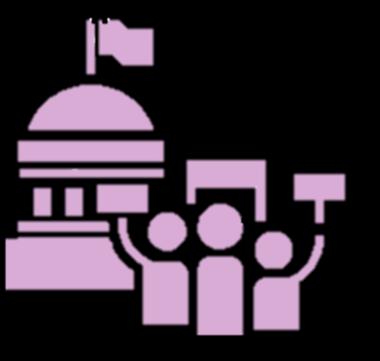
Psychology is the scientific study of how our brain functions and why we behave the way we do. It is as scientific as Biology but without the gory bits!
Psychologists formulate theories, test hypotheses and analyse the findings with statistical techniques that help them identify important findings about human behaviour. Psychology contributes to many different disciplines and is valuable in many different careers.

• Cognitive Psychology: memory, eye witness testimony, cognitive interviews, memory improvement strategies
• Developmental Psychology: attachment in childhood, effects of deprivation and privation, research into the impact of day care
• Biological Psychology: stress, biological responses, physical responses, treatments and therapies
• Social Psychology: social influence, obedience, conformity, social change
• Individual Differences psychopathology (abnormality): psychological approaches to mental disorders, treatments and therapies
• Scientific research and the scientific method
• Psychology in Action: anomalistic psychology study of the paranormal, psychic healing, superstition and coincidence etc.
• Psychological research and scientific method
• Topics in Psychology: biological rhythms and sleep, perception, eating behaviour
On this course there will be opportunities to conduct some fun experiments as well as trips linked to specific areas of the course. By the end of your course, you should have developed a critical approach to scientific methods, evidence and theories, and a knowledge and understanding of how psychology works and its role in society. You will also develop skills including: oral, visual, written communication and problem solving.
The A Level qualification is linear and will be assessed over two years. The assessment is made up of written examinations, which include multiple choice, short answer and extended writing.
A minimum of English Language grade 6 and Maths or Science at grade 6 are needed to cope with the scientific and written nature of the subject.
One of the most important reasons for studying Sociology today is that it helps make sense of our rapidly changing world. Every year about 31,000 students start A Level Sociology courses. About 22,000 start a university degree in the subject. It is clearly popular, so what is it? Sociology is the study of society and the social behaviour of the people in it. Everyone knows something about society they are part of it. However, sociologists look beyond “common sense views” to study society and its structures in a reasoned and disciplined way, trying to explain what lies beneath the surface.
A large part of our Sociology syllabus involves studying our society, both local and global, through news and current affairs. Some of the topics we cover are:
Socialisation how do we learn and become who we are?
Culture what ways of living are there?
Identity who are we and how do others see us?
Families and relationships– what structures exist and how are these evolving? Social research– how can we find out about society?
Social inequalities is our society fair and are people treated equally? Globalisation and the digital social world how is technology impacting us?
Crime and Deviance– how should society define, monitor and react to crime?
The A-Level qualification is linear and will be assessed over two years. The assessment is made up of written examinations, which include source material, short answer and extended writing.

There are three papers, all sat at the end of Year 13
• Socialisation, culture and identity (1hr30)
• Researching and understanding social inequalities (2hr15)
• Debates in contemporary society (2hr15)
You are expected to have at least a grade 5 for English GCSE, however a grade 4 would be considered. An enjoyment of reading and an interest in current events in the media are useful.
For anyone who sees their future career in a science related field, the Applied Science course is an excellent starting point. It covers a wide range of topics across Biology, Chemistry, and Physics and will allow you to acquire a high level of practical skills. If you enjoy Science but are not ready to specialise yet, this may be a good option for you.
The course covers a wide range of science topics, allowing you to experience the full breadth of the world of Science and helping you identify areas of interest for further study. Subjects studied include: the Periodic Table, chemical bonding, cell structure and function, the musculoskeletal system, waves and communication, applications of Science in industry, and more.
Unit 1: Principles and applications of Science

Unit 2: Practical Scientific Procedures and Techniques
Unit 3: Science Investigation Skills
Optional unit: Various, based on students’ interests.
You will complete lab based practical work, written assignments, presentations, discussions, and external exams. There are two externally assessed units, and two internally assessed units. Assignments are based on real workplace situations, activities, and demands.
Entrance requirements: Level 3 qualifications.
In all cases, students should have a minimum of 5 GCSE subjects, at level 4 or above. English Language and Mathematics are preferred. For Applied Science, we ask for a minimum of grade 4 in Science, whether you studied combined or separate Sciences.
This qualification provides an introduction to the Health and Social Care sector. It supports progression to Higher Education, training, employment or an Apprenticeship. It gives you the opportunity to develop a range of skills and techniques, personal skills and attributes that are needed in the Health and Social Care sector.
Students who take this qualification may progress to further study at university,; including Adult Mental Health Nursing, Midwifery, Teaching, Social Work or Counselling. An apprenticeship in childcare, paediatrics, nutrition, personal training or any other profession in health, social care or early years sector is possible.
Units to be studied include: Human Lifespan Development, Working in Health and Social Care and Meeting Individual Care and support needs. Optional units include Physiological disorders and their care.

Assessment is a combination of internally assessed portfolio work and externally assessed exams. You are supported with the opportunity to resubmit work and resit exams where improvement could be made. Grades are awarded on the basis of Pass, Merit and Distinction Level.

Entrance requirements: Level 3 qualifications.
In all cases, students should have a minimum of 5 GCSE subjects, at level 4 or above. English Language, Science and Mathematics are preferred.
The BTEC Level 3 Nationals Sport courses offer qualifications that can be studied alongside other A levels or as the main focus of study.
The BTEC Sport offers students the opportunity to complete the Extended Certificate in Sport (1 A-Level equivalent), the National Diploma in Sport (2 A-Level equivalent) or Extended Diploma in Sport (3 A Level equivalent).
Students can progress on to University to study courses in sport, leisure and physical education. The course is also an excellent pathway towards careers in teaching/ education, leisure management, coaching, physiotherapy and sport psychology.
All students will study anatomy and physiology, fitness and training, careers in the sports industry, sports leadership and coaching, research methods, business in sport, skill acquisition, fitness testing, sport psychology and injury management. Students on the Extended Diploma also study units in practical sport, the development and provision of sport and a second practical unit in sports officiating.
All students will have formal examinations in anatomy and physiology, fitness and training and an additional exam in business in sport for the National and Extended Diplomas. The remaining units are assessed through coursework. This can include written reports, presentations, practical performance in sport and officiating as well as other methods of learning. Students also support PE lessons and extra curricular as part of their sports leadership and coaching development.
In all cases, students should have a minimum of 5 GCSE subjects, at grade 5 or above. English Language and Mathematics are preferred. It would also be advantageous to have studied Physical Education at GCSE. Students must participate in either a competitive individual or team sport.


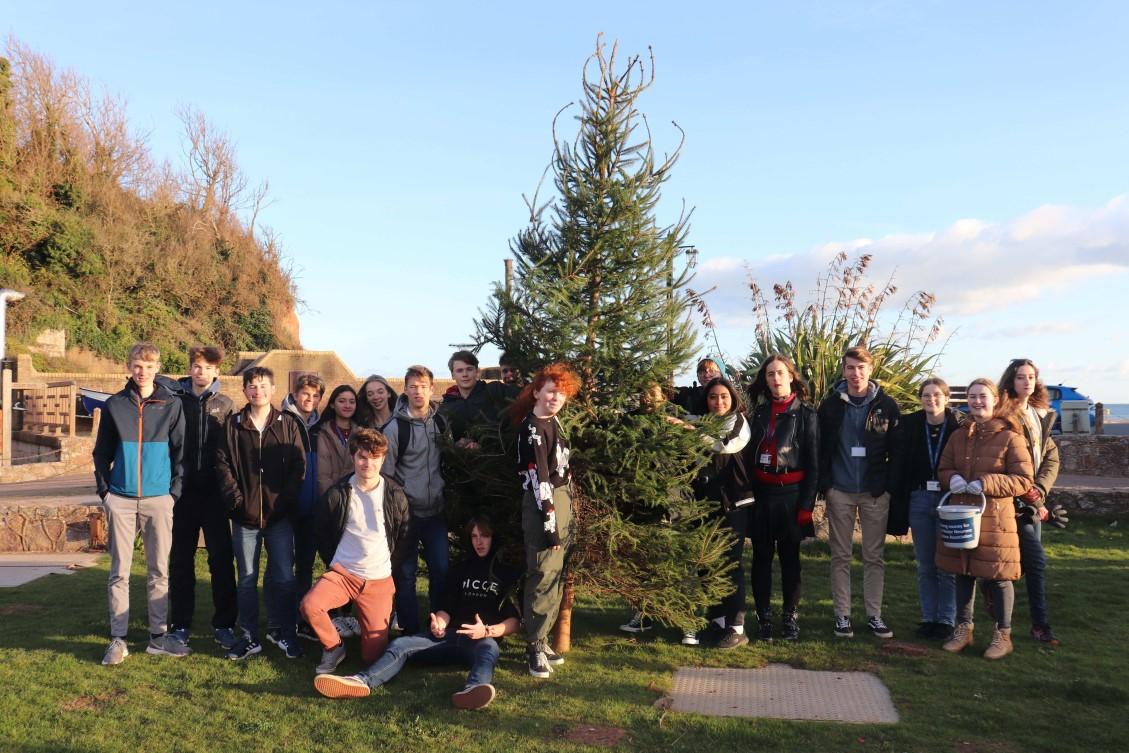


I wanted to stay at sidmouth college due to the amazing staff support on offer both in lessons and outside of them. This was a key element for me as it was something not on offer at some of other options I was looking at and I really value the tailored feedback and mentorship.

I chose to stay at sixth form because of the community feeling at sidmouth college , ranging from the excellent relationships with teachers and the students. The class sizes are small meaning you are really supported “
I chose to stay at Sidmouth College because of the familiarity with teachers and classmates, which combined to make sixth form an incredible experience. I also enjoy the independence and skills you gain from the college sixth form, which allows you to reach your maximum potential!
“
A few reasons why I chose to stay at Sidmouth college are; because of small class sizes in sixth form meaning that you can get more one on time support from teachers, the transition from year 11 to sixth form was made so much easier by the fact that I already knew my teacher and the environment around me. The final reason I chose to do my A levels at Sidmouth was because of the supportive community environment.
“ ”
